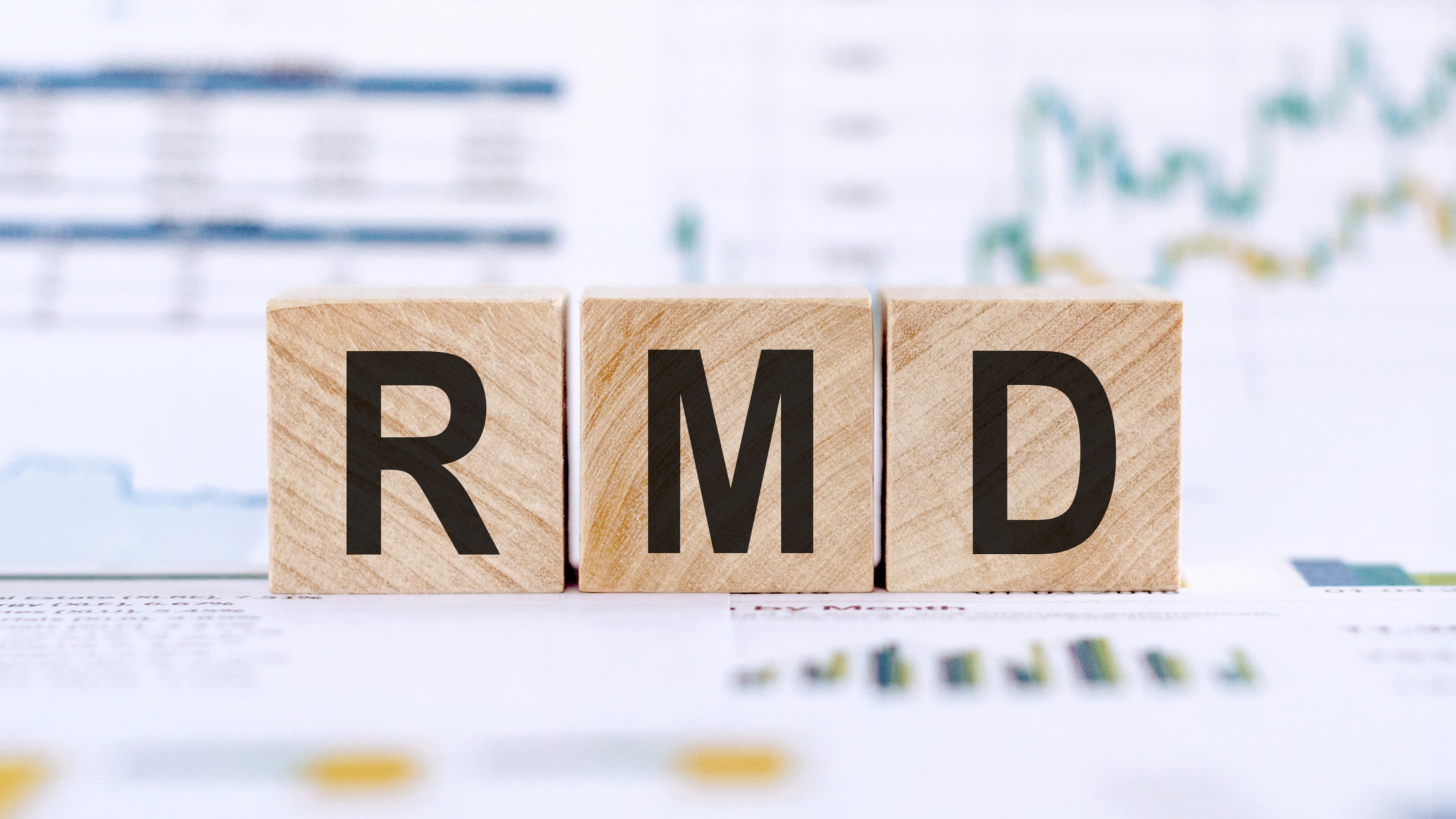Five Tax Planning Strategies to Use All Year to Lower Taxes
Proactive ways to lighten the tax load include deferring or accelerating income, tax-loss harvesting and bunching several expenses into one year.


Profit and prosper with the best of Kiplinger's advice on investing, taxes, retirement, personal finance and much more. Delivered daily. Enter your email in the box and click Sign Me Up.
You are now subscribed
Your newsletter sign-up was successful
Want to add more newsletters?

Delivered daily
Kiplinger Today
Profit and prosper with the best of Kiplinger's advice on investing, taxes, retirement, personal finance and much more delivered daily. Smart money moves start here.

Sent five days a week
Kiplinger A Step Ahead
Get practical help to make better financial decisions in your everyday life, from spending to savings on top deals.

Delivered daily
Kiplinger Closing Bell
Get today's biggest financial and investing headlines delivered to your inbox every day the U.S. stock market is open.

Sent twice a week
Kiplinger Adviser Intel
Financial pros across the country share best practices and fresh tactics to preserve and grow your wealth.

Delivered weekly
Kiplinger Tax Tips
Trim your federal and state tax bills with practical tax-planning and tax-cutting strategies.

Sent twice a week
Kiplinger Retirement Tips
Your twice-a-week guide to planning and enjoying a financially secure and richly rewarding retirement

Sent bimonthly.
Kiplinger Adviser Angle
Insights for advisers, wealth managers and other financial professionals.

Sent twice a week
Kiplinger Investing Weekly
Your twice-a-week roundup of promising stocks, funds, companies and industries you should consider, ones you should avoid, and why.

Sent weekly for six weeks
Kiplinger Invest for Retirement
Your step-by-step six-part series on how to invest for retirement, from devising a successful strategy to exactly which investments to choose.
To minimize your tax burden and make the most of your money, you need to switch from a reactive to a proactive mindset when it comes to taxes.
Here are five strategies you can use year-round to be more proactive about your tax planning.

1. Deferring Income
When you have high-income, high-tax working years, you might want to defer that into your low-tax, nonworking years, like retirement.
See if your company offers a nonqualified deferred compensation plan where you can defer some of your compensation into the future. You can access those funds after a trigger event, like when you leave the company, retire, become disabled or reach a certain age. This income is only taxable when you receive it.
These plans reduce your short-term taxable income and grow your wealth, but only if you’ll be in a lower tax bracket in retirement. You need to balance cash flow and tax rates today and pay attention to what your future tax rates might be.

2. Accelerating Income
In low-tax years — like when you’ve switched jobs, lost a job and are out of work for a few months, or work on commission and had a slow year — accelerate your income.
There are a few simple ways to do that: If you’re employed and paid hourly, work more hours if you can. You could also get a second job.
But there are more complex ways to do this: sell a business, sell real estate or investments or do a Roth conversion.
When you sell a business, you may defer the proceeds to the future by receiving the sales price over annual installments, which limits the tax impact. However, you may choose a lump-sum payment for your business to recognize the income in a low-tax year.
With a Roth conversion, you convert tax-deferred money from your traditional IRA or 401(k) accounts to a Roth IRA, which might allow for tax-free distributions in the future. When you do a Roth conversion, you must pay taxes on any portion of the traditional IRA for which you had taken a deduction.
Doing a conversion in a low-tax year — as opposed to pulling money out in a high-tax year — can be a valuable tax planning strategy.

3. Taking Required Minimum Distributions
When you turn 73, you must take taxable required minimum distributions (RMDs) from your qualified retirement accounts (Roth IRAs and Designated Roth accounts excluded). To figure out how much you have to withdraw, check the IRS Uniform Lifetime Table for the number that corresponds to your age and then divide your account balance as of Dec. 31 of last year by that number.
Retirement can be a time when things like taxes on withdrawals from retirement accounts and investment earnings can add up. Without planning strategies, the additional income could add up to tens of thousands of dollars in extra taxation over time.
You must also consider how higher taxable incomes due to rising RMDs over the years will impact taxes on Social Security payments and create higher costs for Medicare premiums.
While each person’s tax-saving strategy will differ, some common tax-saving strategies in this area include taking an RMD as a series of installments during the year or converting your traditional IRA to a Roth IRA.

4. Tax-Loss Harvesting
Offsetting capital gains by intentionally selling shares of assets that will generate losses is called tax-loss harvesting. Investors commonly do this in December by assessing their portfolio performance to offset the effects of any losses with gains.
Investors must be aware of the 30-day wash sale rule, which prohibits you from “locking in” a loss by buying substantially identical securities within 30 days before or after selling an investment at a loss.
While common in December, you must understand when and why you should do tax-loss harvesting, which is where your financial professional is especially helpful.

5. Bunching
Bunching is a smart tax strategy for people who want to maximize their itemized deductions. By bunching several expenses into one year, you increase the chance of going above the standard deduction amount and being able to itemize your deductions in one single year, resulting in more significant tax savings. For example, if you normally give your favorite nonprofit $1,000 a year, you can give $10,000 in one year instead.
But bunching isn’t just for charitable contributions — it can also include business expenses, medical expenses and 529 plan contributions to create a larger income tax deduction in a given year. Keep in mind that certain expenses have a cap, or limitation, on how much can be deducted per year, so make sure you understand those caps and limits so you can take full advantage of the bunching strategy.
Talk to Your Professional
Being proactive about your taxes in the optimal way for your individual situation requires the help of a financial professional. A professional can help you determine whether any — or all — of these strategies is right for you.
While death and taxes are both certain, death happens only once, while taxes come every year. So proper tax planning with a qualified professional is vital.
This article was written by and presents the views of our contributing adviser, not the Kiplinger editorial staff. You can check adviser records with the SEC or with FINRA.
Profit and prosper with the best of Kiplinger's advice on investing, taxes, retirement, personal finance and much more. Delivered daily. Enter your email in the box and click Sign Me Up.

Jamie P. Hopkins is the Chief Executive Officer of Bryn Mawr Trust Advisors and Chief Wealth Officer of WSFS. Jamie is a graduate of Temple University School of Law, where he received his LL.M., and Villanova University School of Law, where he earned his juris doctorate and his MBA. A Wall Street Journal bestselling author, educator and executive speaker, Jamie serves on numerous advisory boards around the financial services industry and formerly as a national trustee member of NAIFA.
-
 Quiz: Do You Know How to Avoid the "Medigap Trap?"
Quiz: Do You Know How to Avoid the "Medigap Trap?"Quiz Test your basic knowledge of the "Medigap Trap" in our quick quiz.
-
 5 Top Tax-Efficient Mutual Funds for Smarter Investing
5 Top Tax-Efficient Mutual Funds for Smarter InvestingMutual funds are many things, but "tax-friendly" usually isn't one of them. These are the exceptions.
-
 AI Sparks Existential Crisis for Software Stocks
AI Sparks Existential Crisis for Software StocksThe Kiplinger Letter Fears that SaaS subscription software could be rendered obsolete by artificial intelligence make investors jittery.
-
 Social Security Break-Even Math Is Helpful, But Don't Let It Dictate When You'll File
Social Security Break-Even Math Is Helpful, But Don't Let It Dictate When You'll FileYour Social Security break-even age tells you how long you'd need to live for delaying to pay off, but shouldn't be the sole basis for deciding when to claim.
-
 I'm an Opportunity Zone Pro: This Is How to Deliver Roth-Like Tax-Free Growth (Without Contribution Limits)
I'm an Opportunity Zone Pro: This Is How to Deliver Roth-Like Tax-Free Growth (Without Contribution Limits)Investors who combine Roth IRAs, the gold standard of tax-free savings, with qualified opportunity funds could enjoy decades of tax-free growth.
-
 One of the Most Powerful Wealth-Building Moves a Woman Can Make: A Midcareer Pivot
One of the Most Powerful Wealth-Building Moves a Woman Can Make: A Midcareer PivotIf it feels like you can't sustain what you're doing for the next 20 years, it's time for an honest look at what's draining you and what energizes you.
-
 I'm a Wealth Adviser Obsessed With Mahjong: Here Are 8 Ways It Can Teach Us How to Manage Our Money
I'm a Wealth Adviser Obsessed With Mahjong: Here Are 8 Ways It Can Teach Us How to Manage Our MoneyThis increasingly popular Chinese game can teach us not only how to help manage our money but also how important it is to connect with other people.
-
 Looking for a Financial Book That Won't Put Your Young Adult to Sleep? This One Makes 'Cents'
Looking for a Financial Book That Won't Put Your Young Adult to Sleep? This One Makes 'Cents'"Wealth Your Way" by Cosmo DeStefano offers a highly accessible guide for young adults and their parents on building wealth through simple, consistent habits.
-
 Global Uncertainty Has Investors Running Scared: This Is How Advisers Can Reassure Them
Global Uncertainty Has Investors Running Scared: This Is How Advisers Can Reassure ThemHow can advisers reassure clients nervous about their plans in an increasingly complex and rapidly changing world? This conversational framework provides the key.
-
 I'm a Real Estate Investing Pro: This Is How to Use 1031 Exchanges to Scale Up Your Real Estate Empire
I'm a Real Estate Investing Pro: This Is How to Use 1031 Exchanges to Scale Up Your Real Estate EmpireSmall rental properties can be excellent investments, but you can use 1031 exchanges to transition to commercial real estate for bigger wealth-building.
-
 The 8 Stages of Retirement: An Expert Guide to Confidence, Flexibility and Fulfillment, From a Financial Planner
The 8 Stages of Retirement: An Expert Guide to Confidence, Flexibility and Fulfillment, From a Financial PlannerRetirement planning is less about hitting a "magic number" and more about an intentional journey — from understanding your relationship with money to preparing for your final legacy.
